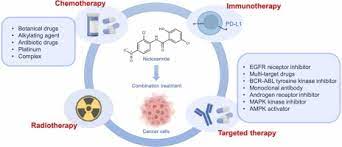
Breaking News
 The Prostate Cancer Test Dilemma
The Prostate Cancer Test Dilemma
 The Separation of Righteousness and Politics
The Separation of Righteousness and Politics
 Russian strike knocks out power in Kyiv FRANCE 24 English
Russian strike knocks out power in Kyiv FRANCE 24 English
Top Tech News
 How underwater 3D printing could soon transform maritime construction
How underwater 3D printing could soon transform maritime construction
 Smart soldering iron packs a camera to show you what you're doing
Smart soldering iron packs a camera to show you what you're doing
 Look, no hands: Flying umbrella follows user through the rain
Look, no hands: Flying umbrella follows user through the rain
 Critical Linux Warning: 800,000 Devices Are EXPOSED
Critical Linux Warning: 800,000 Devices Are EXPOSED
 'Brave New World': IVF Company's Eugenics Tool Lets Couples Pick 'Best' Baby, Di
'Brave New World': IVF Company's Eugenics Tool Lets Couples Pick 'Best' Baby, Di
 The smartphone just fired a warning shot at the camera industry.
The smartphone just fired a warning shot at the camera industry.
 A revolutionary breakthrough in dental science is changing how we fight tooth decay
A revolutionary breakthrough in dental science is changing how we fight tooth decay
 Docan Energy "Panda": 32kWh for $2,530!
Docan Energy "Panda": 32kWh for $2,530!
 Rugged phone with multi-day battery life doubles as a 1080p projector
Rugged phone with multi-day battery life doubles as a 1080p projector
 4 Sisters Invent Electric Tractor with Mom and Dad and it's Selling in 5 Countries
4 Sisters Invent Electric Tractor with Mom and Dad and it's Selling in 5 Countries
Repurposed tapeworm drug, Niclosamide, kills cancer cells

Niclosamide (or, Niclocide), is a teniacide in the anthelmintic family which is especially effective against cestodes (tapeworms). It has been approved for use in humans for nearly 50 years and is well-tolerated. Importantly, Niclosamide inhibits oxidative phosphorylation and stimulates adenosine triphosphatase activity in the mitochondria of the worms This has been shown both in vitro and in vivo. This action plus the inhibitory effects of niclosamide on cancer stem cells make it a promising drug for cancer treatment (8).
1. Niclosamide attacks cancer cell mitochondria and combats p53 deficiency
As cells are progressively weakened through, for example, a failure of the magnesium pump on their surface and thus too much sodium entering the cell, the influence of oestradiol and lowered oxygen levels, the cells' mitochondria lose power and the p53 gene switches off. Under normal circumstances, p53 is in charge of a regulated cell growth and division. Without p53 in charge, the cells go out of control, growing rapidly. This is cancer.

 Pathway to the stars
Pathway to the stars

